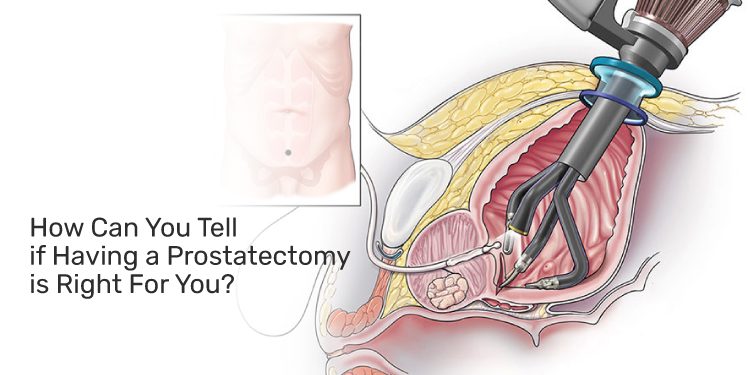Determining whether a prostatectomy is right for you involves a detailed assessment by a qualified urologist In Jaipur, the best course of action is to consult with a reputable urologist who can guide you through the decision-making process.
Here’s a point-to-point description of how you can tell if having a prostatectomy is the right choice for you:
Consultation with a Urologist: Begin by scheduling a consultation with the best urologist in Jaipur. This initial meeting is crucial as it allows the urologist to evaluate your medical history, current health status, and the specific details of your prostate condition.
Medical Evaluation: During the consultation, the urologist will conduct a thorough medical evaluation. This may include a physical examination, a review of your symptoms, and possibly additional tests such as prostate-specific antigen (PSA) blood tests, imaging studies like MRI or ultrasound, and a biopsy if necessary.
Discussion of Treatment Options: Based on the findings from the evaluation, the urologist will discuss various treatment options with you. These may include watchful waiting (active surveillance), medication, radiation therapy, or surgery (prostatectomy).
Assessment of Cancer Stage and Grade: If prostate cancer is present, the urologist will assess its stage and grade. This information helps determine the appropriate treatment approach. Prostatectomy is often recommended for localized prostate cancer that hasn’t spread beyond the prostate gland.
Consideration of Risks and Benefits: The urologist will explain the potential risks and benefits of prostatectomy. Risks may include surgical complications, such as bleeding, infection, urinary incontinence, and erectile dysfunction. On the other hand, the benefits may include removal of cancerous tissue and potential cure or control of the disease.
Personalized Decision Making: Your urologist will work with you to make a personalized decision regarding prostatectomy. Factors such as your age, overall health, preferences, and the aggressiveness of the cancer will be taken into account.Second Opinion: In some cases, seeking a second opinion from another qualified urologist can provide additional insights and help confirm the recommended treatment plan.
Preoperative Preparation: If you and your urologist decide that prostatectomy is the best option, thorough preoperative preparation will be undertaken. This may include additional tests, counseling on what to expect during and after surgery, and instructions on lifestyle modifications or medications.
Surgical Procedure: The prostatectomy procedure will be performed by an experienced surgical team. Depending on the type of prostatectomy (open, laparoscopic, or robotic-assisted), the surgery may involve removing part or all of the prostate gland.
Postoperative Care and Follow-Up: After the surgery, you will receive postoperative care to manage pain, promote healing, and monitor for any complications. Regular follow-up appointments with your urologist will be scheduled to track your recovery, assess treatment effectiveness, and address any concerns.
Long-Term Monitoring: Following prostatectomy, long-term monitoring is essential to monitor PSA levels, evaluate urinary and sexual function, and detect any signs of cancer recurrence.
Lifestyle Adjustments: Depending on the outcome of the surgery and your overall health, lifestyle adjustments such as dietary changes, exercise, and ongoing medication may be recommended to support your recovery and overall well-being.
By following these steps and working closely with the best urologist in Jaipur, you can determine if having a prostatectomy is the right decision for your specific medical condition and personal preferences.
In Conclusion,
the decision to undergo a prostatectomy is a highly individualized one that requires careful consideration of various factors such as the stage of prostate cancer, overall health, and personal preferences. Consulting with the best urologist in Jaipur can provide invaluable guidance and information regarding the potential benefits and risks of the procedure. Ultimately, the best course of action can be determined through open communication with healthcare providers and a thorough evaluation of all available options.


 Home
Home









